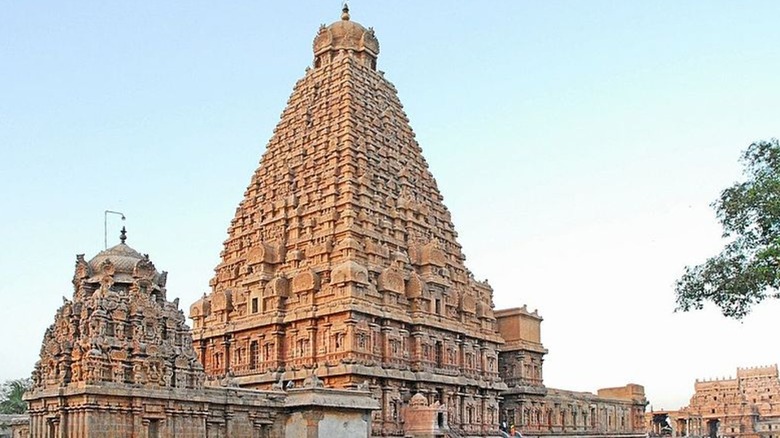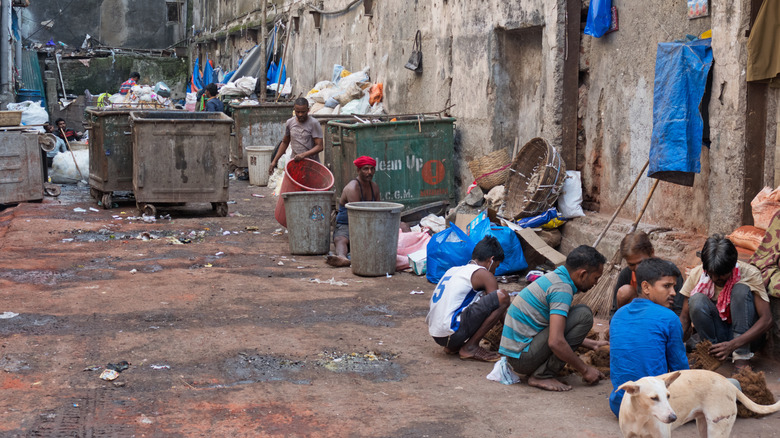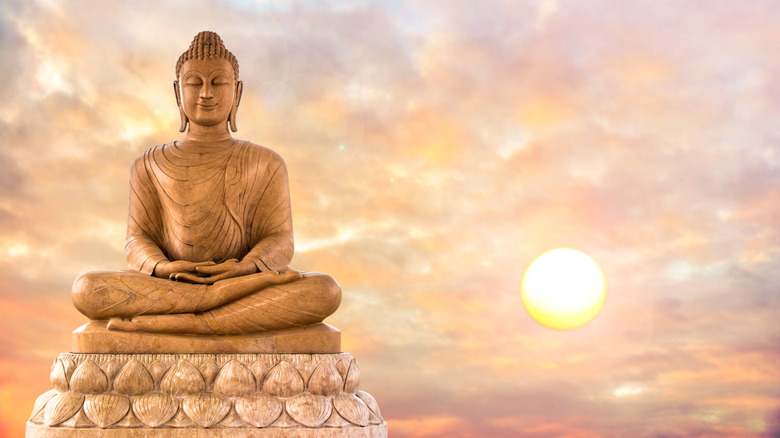The Caste System Of Hinduism Is Rooted In Two Core Beliefs
Religions and belief systems have tried to piece together how the world works, and how people should behave in accordance with metaphysical ideas. Christians believe that if someone accepts Jesus Christ as their lord and savior and repents for their sins they can enter the Kingdom of God, Muslims have a similar idea and believe that those who live a righteous life will enter heaven, whereas those who not will go to hell, and the ancient Greeks believed that one traveled through the realm of Hades after death trying to find salvation, according to Getty.
Other religious systems don't have a rigid separation between the world of the living and the dead, but rather believe in cycles of reincarnation, such as Hinduism and Buddhism. In these two religions, death is not seen as the end, but rather a process where people try to attain higher levels of status and existence. According to Set Free, only by living good lives and attaining good karma can one hope to be elevated to another caste.
The two elements of caste
For Hindus specifically, people are born into four different castes and are only reincarnated as humans. The lowest caste is the Sudras, traditionally peasants or servants; the next level is Vaishyas, who are merchants; Kshatriyas are warriors, kings, or other rulers; and the final level is the Brahmins, the teachers, and priests of Hinduism, according to Phiren Amenca. It is believed that by doing good deeds in your current life, you will be rewarded with higher status in the next.
Below all of these is a group of people known as Dalits, or the Untouchables. Members of this caste aren't allowed to associate with any other denomination whatsoever. Even now Dalits face harsh segregation and are often abused in everyday society. It is sometimes expected that Dalits should do harsh manual labor that was unattractive to the higher castes, and many were indentured servants, including children (via National Geographic). Today, some laws are implemented to protect Untouchables, but often aren't enforced due to permeating cultural beliefs, according to Britannica.
Comparison to Buddhism
Many Untouchables convert to other religions due to this discrimination. Buddhism is often a popular religion to follow given its more empathetic take on the caste system and reincarnation as a whole, compared to its older spiritual cousin (via Britannica). In Buddhism, there is still karma and the belief in reincarnation, but the castes are radically different. Buddhists believe that all people are equal, and all people can reach enlightenment, but they also hold the notion that people can be reincarnated into different beings.
Usually, these beings are divided into six different categories: Gods, demigods, humans, animals, hungry ghosts, and devils. Hungry ghosts are beings who are constantly craving one thing that can never be fully satisfied, according to Lion's Roar. Nonetheless, both Hindus and Buddhists believe that karma exists and that the actions in our lives have consequences that follow us to the next, in the hopes that one day we will live in eternal bliss.


